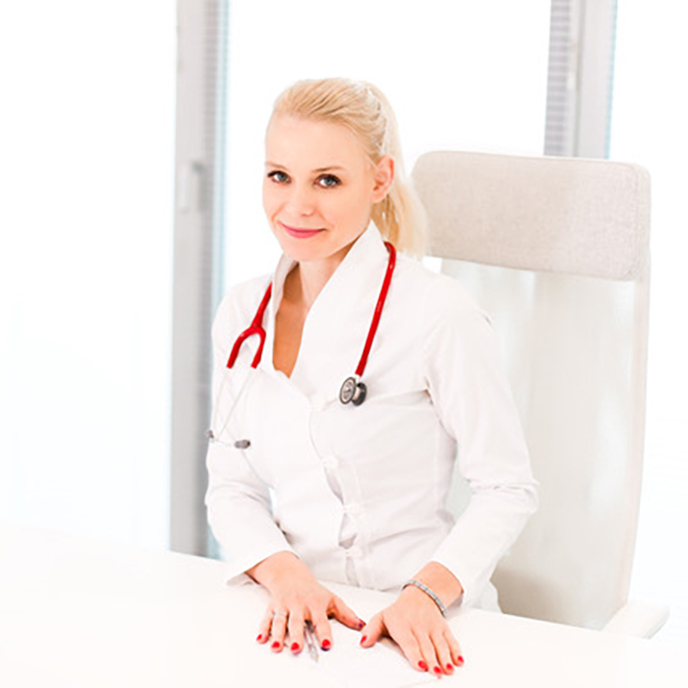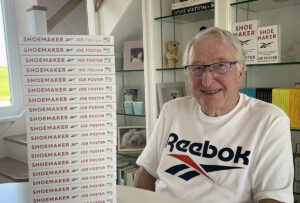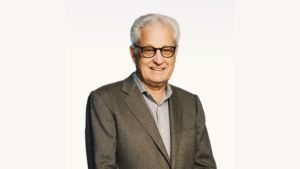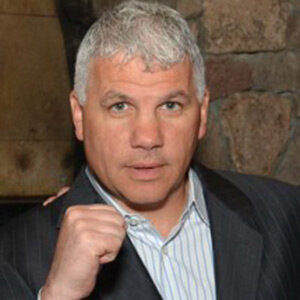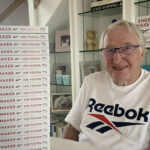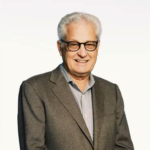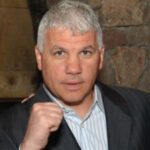View this episode's trailer
Episode Description
Dr. Christina Rahm speaks with long-time colleague, friend, and holistic pediatrician Dr. Tina Bozicnik. Hailing from Slovenia, Dr. Tina and Christina discuss functional medicine, family well-being and her journey to become one of the most trusted names in childcare.
Host
Dr. Christina Rahm
Guest
Dr. Tina Bozicnik
TRANSCRIPT
Intro [00:00:00] OK, OK. I hope you guys enjoyed this episode of Scientifically Beautiful which is on the Life is Tough You Can Be Tougher Network.
Dr. Rahm [00:00:29] Hi, this is Dr. Christina Rahm. I’m coming to you from Nashville, Tennessee, and this is Scientifically Beautiful. My podcast, where I get to interview amazing people from throughout the world that talk about science and medicine and nutrition. And today, even though I’m in Nashville, Tennessee, I have the privilege of introducing Dr. Tina Bozicnik. I’m going to let her say her last name because I don’t do it justice. And I also don’t do her justice when I say the things, I’m getting ready to say about her, because I have a world of respect for her. She is a medical doctor and a pediatrician in Slovenia, and she’s been a Pediatrician of The Year, two years in a row and recently found out that she was voted again pediatrician of the year. And she is in the International Science Nutrition Society with me and a dear friend, a wonderful mother and a wonderful wife. And we’re going to talk about her life and what she’s done, and I hope that everyone throughout the world gets to know her a little bit better. Hello, Dr. Tina, how are you?
Dr. Bozicnik [00:01:40] I’m wonderful. Thank you for having me. Such a privilege being here and an honor, really.
Dr. Rahm [00:01:46] Well, I think the world of you and you’ve done amazing things. You know, you are a beautiful person inside and out. And often when someone has accomplished so much like you, and I’m going to let you tell the audience a little bit about yourself in a second. But a lot of times when someone has accomplished these things and looks so beautiful and is so composed and has such a strong education, people think their life has been easy. But that’s not the case. And one of the things I’ve always loved so much about you is that you’ve been such a support for me because, you know, I’ve gone through tough things in my life. I’ve been criticized. I’ve been hurt. It’s been hard, sometimes right, as a mother and in my profession, and you’ve had the same experiences and there’s been times when things happen to you and I jump to your defense as well because I think one of the things about life when it’s tough is you’ve got to have this tight circle around you that have the same mission and cause and, you know, will be there no matter what. And that’s what I have found in you, and I’m very thankful for it. And I too want to cry because I’m so excited to get into your story. But I do want… we’re going to talk about you as a mother and a wife and lots of different things, but I would love for you to start and give a little bit of a background about your life. You can start when you were younger or whenever, but I want people to understand a little bit about you because again, my hope is that they get to know you a little bit better.
Dr. Bozicnik [00:03:17] Thank you so much and thank you for all those beautiful words. I mean, you know, thei feelings are mutual. And you know how it is. It’s you are who the closest people you spend the most time with are like, so you are, you know, the average of, once I heard you’re the average of the five people who spent the most time with. So, I’m so happy and honored that I had half an opportunity spending so much time with you and right now on this podcast because I truly believe that it’s not just the epigenetics or not just the law of attraction. Everything I know you’re spiritual. I’m a spiritual person. And it really, it really does matter. But yeah, something about me. I am a medical doctor. I’m a pediatrician from Europe, from Slovenia. I’m also a functional medicine doctor. I also have a degree in traditional Chinese medicine and acupuncture. And I’m doing also a fellowship in functional neurology, functional developmental neurology, which is really going more in-depth in functional, basically functional brain connections and all those things because I am a mom, and I am a mom of a beautiful little girl, and she will turn six in October. And we had some problems and I, my basic pediatric knowledge at certain points didn’t… couldn’t give me an answer what’s going on with her? She was hyper tone when she was a baby. She didn’t have sucking reflex. We were really struggling to feed her. Her mouth was really, really sensitive. So, she was refusing a pacifier, she was refusing to be bottle-fed. So, we had a lot of problems and then I am a little bit like, I’m like you. I was always looking for the root cause. I always wanted to get to the root cause of all the problems. And I remember in medical school, once I was asking one of the professors, I said, OK, we are… I know when treating autoimmune diseases, of course, especially with thyroid problems. Of course, we have to give the people their hormones and restore the hormone levels. But why aren’t we then looking for the root cause of the problem? And then this professor said, oh my God, my dear young colleague, you’re still full of enthusiasm and you’ll see in a couple of years this will go away. This will fade away. Well, it didn’t. And I kept on searching. And when those things started to happen with my daughter, I started to see a lot of connections with other kids that I was treating. And then I was going really deep first functional medicine, nutrition, gut health, gut brain connection and then going deeper into really dysfunctional developmental neurology where it’s not, it’s not just pediatrics it’s actually also a lot about adults who have ADHD, schizophrenia, depression and other problems and how this is actually really how this really started in their childhood or better in the womb. So, this is what I’m focusing on really now, joining all the knowledge I have about detoxing, supporting our bodies in a natural way, really supporting our bodies so that they can really, they can renew and that our bodies can come to their basic level of health and how our bodies can really kind of regenerate themselves because this is a possibility of our body. So, yeah, and also to some things I don’t know, even if you know about them. And it was, I think just two years ago, I started really speaking about that. I had anorexia in my life, indeed wasn’t really easy. Twice I got it. It was really, really severe in a way… I am, I don’t know… In your measurements, I’m one hundred and seventy-five centimeters tall. This is five foot seven, I think.
Dr. Rahm [00:07:38] Yeah, yeah, yeah.
Dr. Bozicnik [00:07:41] And I had like around forty-three kg. I don’t know how many pounds. Yes, yes. And I relapsed twice, and I got better actually without medical help. But with my mindset and really working on myself and working really on my personal development, it kind of all started before that. It was in my teens, late teens and beginning of my medical school, and back then I already had some knowledge about thyroid disease, and I was faking, I had hypothyroidism because of that. Yeah, I had a lot of dysfunctional relationships with my parents, especially my father. I had the feeling that they don’t, they did, they, of course, they gave me all they could, their love in such a way that they thought that I’m going to need it. But I had a feeling that they don’t know me. They don’t hear me; they don’t listen to me. And they were kind of, in a way, kind of my mom was really a helicopter parent in a way. And I needed much more freedom. So now knowing what was happening before, how primitive reflexes in all the neurological things in the brain kind of come into account and epigenetics and everything, now it makes sense everything what was going on. And I’m so grateful that this actually happened to me because all the obstacles, everything, I saw really that everything that looks really difficult at the beginning or like when you’re hitting on rock bottom is actually a wonderful opportunity if you know how to take it. If you know how… of course, we are all upset, we are all emotional when this happens. But then you learn through all the experiences that you shouldn’t be driven by emotion. You have to feel the emotion. You have to really live the emotion and then you shouldn’t be driven by the emotion, but just, you know, go for it and learn what this is, what opportunity is God or life or universe, whatever you may call it, giving you with this. And of course, looking back, it’s easier to see that. But I can tell you that all those things actually made me. They made me who I am today, the mother I am today, the pediatrician I am today. If I didn’t have all these experiences, I wouldn’t be here. I would be someone probably still battling with anorexia with lack of self-love, I would… I hated myself. I had the constant feeling that something was wrong with me. I remember once I stepped into a restaurant with my sister and I had the feeling that all people are just looking at me and just, you know, they see all the things that are wrong. And I felt so bad and I didn’t talk much about that. And then I said it was too strong. And I said to my sister, oh my God, I feel so bad. I feel like everyone is just looking at me and looking, “What’s wrong with me?” And she was like, you are crazy. I mean, you have such an energy. And whenever you enter the room, people look at your energy. People look at your spirit, people see you. They don’t see all of your mistakes. I mean, you should feel totally different and totally opposite of that.
Dr. Rahm [00:11:21] And Tina, I want to… I don’t mean to stop you, but I want to stop you. I actually have never had this conversation with anyone, but that’s how I always felt. And I would literally… I had anxiety sometimes about walking into a room because I felt like everyone was staring at me. It makes me want to cry and talking about me. And I was always… been very, well, I’ve gotten a lot better, but I used to be extremely uncomfortable and I’ve never shared that with anyone. It was overwhelming to me, right? I literally was like, why is everyone staring at me and felt horrible, right? About myself and that’s so odd because you were the only other person I’ve actually, well, you’re the only person I’ve said that to, but to hear you talk is exactly how I felt. And then I was actually. Who do you tell that to you? You were fortunate to be able to tell your sister and she could talk to you about it.
Dr. Bozicnik [00:12:19] At that time, she was the only one I ever opened up to admit, admit that, and it was just this brief conversation. We never kind of had it again. Yeah, it’s my feelings and this awkward feeling actually grew. It happened that if there was a crowded street through that and just walking on the street, and today I understand studying functional neurology, what is actually happening is functional brain disbalance, having my left brain really strong and my right brain not keeping up with my left, my left is taking over and ignoring my right and the left brain is all about perfectionism. The left brain is really about everything being kind of having rhythm and having everything in the right place.
Dr. Rahm [00:13:15] Perfect. Yeah. Yeah.
Dr. Bozicnik [00:13:18] Have to be on time. You have to do that…
Dr. Rahm Which is overwhelming because you can’t be perfect all the time.
Dr. Bozicnik And it’s the details, you know, the details? Sometimes how some things feel on your skin, some materials that are not feeling right and how you are actually… and sometimes even like feelings of anxiety and not being good enough and not getting in happening. And yes, and this is how… and also, you know, having the feeling that your family doesn’t understand you and hear you even though they were really doing their best. I had everything as a child and I wasn’t living in a lack financially or… There were moments later on… I was at the beginning of my teens where there were some financial problems also in our family. And, you know, but my parents always tried to really… I had everything and my sister had everything too. But it was just, you know, how, and you see how those materialistic things, those material things didn’t matter; what mattered to me as a child, as a teen growing up was that my mom hears me, my dad hears me, and for a lot of time, I was refusing spirituality. I was refusing God because I was in this mode of a victim. Because why is this happening to me? Why do I deserve that? And then I went into kind of esoteric realm, started meditating, starting to looking, searching for myself. Who am I? Who am I? Who is Tina? I mean, you know, who am I basically? And then through that, I kind of came to this energy mechanism in traditional Chinese medicine. I was always oriented towards the root cause. I knew there must be something. There is a reason for everything that’s going on. And my mom had, well she still has, Hashimoto’s, and I have Hashimoto’s and my sister who has, I would say, a wonderful relationship with my mom; she didn’t develop Hashimoto’s. And I was like, why me? And then through all these years of searching for who am I and what’s going on and the root cause, I came to an idea which I think is totally believable. Especially, I mean, a lot of doctors will probably think that I’m crazy, but I truly believe that. That I adopted this disease so that my mother started seeing me because it was the only thing we were alike, you know, and we all need this likeness.
Dr. Rahm [00:16:16] We need to feel accepted or understood because I think, just listening to your story… I had this perfect older sister who I love and I’m like, you, I had this amazing family. I can’t complain, but I felt the same way, like I was out of place, I wasn’t part like everyone else, I was different and felt uncomfortable about that. And I… actually it makes sense that you somehow subconsciously adopted this so that you could get close to your mother. And I know, I obviously as a psychologist and counselor as well as a scientist, I don’t think you’re crazy. I think that… But I do understand that a lot of people don’t understand things like that because I think it’s more common than we think to have children in a family that don’t feel accepted or understood. And then… and there’s a… this is your story. But I just feel like regardless of who you are and what you accomplish in life, you want your mother’s love. You know, I mean, it’s just it’s just it’s the best… I don’t know how to describe this because my sister was always closer to my mother as well. I always felt out of place. I was different. But that love is one of the most important things in life, I think. And so, I’m sure I believe you’re right. Let me just say that I believe you’re right, and I think you’re so, oh, my goodness, I am always known this. You’re so unbelievably good and brilliant and amazing. You figured that out, and most people don’t. But please continue the story because this is very interesting to me hearing this and it wasn’t even what I planned to talk to you about. But I love this because you feel like you basically adopted this because your mother had it. And how did that cause your relationship? Did it get better after that? Did it… do you feel like it caused you to relate a little bit more?
Dr. Bozicnik [00:18:13] Yeah, probably to some extent, but not to that… It didn’t heal our relationship, even though in my kind of in my mind, when I came to this conclusion, I thought, oh my God, this is… this is what we have kind of in common what we have together. And yes, and I was able to understand her how she is feeling and fighting her symptoms because we were just put on Thyroxine pills and that was it. And of course, the inflammation kept on going and devastating our bodies. And then when I had… once I had really, really like my body collapsed and my hormones and everything. And then I said, OK, now I remember how… now I understand how she feels… she must have felt all those years. And now I get her. But there is the difference. She will remain where she is and she is always remaining the victim. I, on the other hand, I never stop searching. I never stop looking for the root cause and whatever I kind of learn, I put into practice immediately. So, then I started… first I started with traditional Chinese medicine, Acupuncture. I was trying to heal my body with that. And then you know Ayurveda and all those things. And you know, little by little, I felt better. But until I really found Functional Medicine and I got all the explanations; what’s going on and how to support my body I was really, I was… I didn’t feel good, and I felt depressed and not just because of all the feelings we share and we had in common, but also because of my physical body wasn’t working the way, the way… my memory and everything. So yes, and I was a lot of times trying to help her with nutrition and giving her a lot of information, you know, what to do baby steps, how to feel better. And then she goes like, you know even Hippocrates said, you know, nutrition is everything. If you don’t know how to heal someone’s body, heal the gut, start with the gut. This is food as medicine, your food needs to be your medicine. So, I… it’s working on my body, it’s working, you know, fantastically. I tried to help my mom several times and she goes like, oh my God, changing the diet? I think, you know, as a human being, you should eat everything. You know, you shouldn’t be on a special diet. I think it’s just a way of living how you adopt a way of living. And once I was in a… I had an interview and there was another woman as well from Israel. And she said, you know, why do we all hate the name diet? Because it has the name “die” in it and automatically, we feel like, oh my God, I’m going to die.
Dr. Rahm If I give up something, yeah, I’m going to die.
Dr. Bozicnik [inaudible] style of living, and it makes sense. So, it’s really you have to adopt the new way and your lifestyle. And it’s not just about the diet, it’s about mindset. It’s about, you know, your environment, it’s about everything. So, this is where our relationship is kind of… I still believe we have a lot of opportunities. I’m always open. My heart is open to, and will accept you know her, whenever she would want to approach and create a different relationship. It’s not a dreamlike relationship, but in fact, it didn’t help me a lot adopting this disease, which really… to creating a better relationship with her.
Dr. Rahm But your life’s not over.
Dr. Bozicnik And so, yeah, I mean also it’s a way, you know, I mean, I was suffering a lot because of that, and I had friends and my best friends who had those wonderful relationships with their moms, and I was always kind of missing that. But then I came to this conclusion. This really made me strong, and part of my healing process, even from anorexia, was… I remember I was in my apartment that I had when I was in med school and my roommate, she was studying like some economics. And she… I mean, it’s different when you’re in med school or doing economics. And she was always partying and out and having fun, and I was studying my anatomy. And then I remember once I collapsed and I started crying and I’m probably going to cry now. And I was sitting in my room, I felt completely abandoned. So, I feel like I was like, I’m gonna… for the rest of my life I’m just going to be alone. That’s all the people abandoned me. The fact was that I was quite popular in my high school and I had a lot of kind of friends who were really… they were not friends. They were just kind of, you know, those kinds of superficial relationships. And but I was surrounded with a lot of people and I always surrounded myself with a lot of people, probably because I didn’t feel accepted at home. I didn’t feel that I belonged and I fit in, because I always had the feeling that something was wrong with me. And then, you know, you start to kind of, you know, kind of you have the tendency to gather people around you. Do you have this feeling of safety?
Dr. Rahm Yeah.
Dr. Bozicnik And a lot of people, of course, they praise you. Some of the people praise you and you get this positive kind of in a way, those confirmations from the outside that you’re looking always when you are struggling with conditions like I was struggling with. And all of the sudden I went to med school. And I remember first week… after the first week, we already had our partial exam in anatomy, anatomy of the hand, and I was like, oh my God, all the other people are out and partying and enjoying their life, and I’m stuck here with my books. But this is me and my left brain. You have to, you know, just go on, just go on and you have to, you have to, just you know… you started you finish it. And this is like, I am the finisher. This is what is wrong with me. And also, perfectionist, which wasn’t so good at times studying medicine. I remember I was sitting in my room and I collapsed and I was crying. I was crying like a baby. At the beginning, I felt like crying, but I couldn’t even cry. No tears were coming out whatsoever, and I was like, oh my God, I mean, I have to cry. Where are those tears? And then I kind of relaxed and I just started crying. I was probably crying for two hours in a row, and I didn’t even, at the beginning, I didn’t even know why I’m crying. And then I said, OK, what is causing? I was kind of self-coaching myself going in deep. And then I realized it’s OK. It’s… I always kept this answer that’s coming back and I kind of heard this. It’s like, you know, you’re afraid to be alone. I’m afraid I’m going to be alone. I’m afraid that I’m gonna I’m going to just, you know, stay and stay here. I’m going to be completely abandoned from everyone. And then it made sense. OK, yeah, I’m… I have so many people around because I’m afraid to spend time with myself. I’m afraid of being alone with myself. And why is that? And then all, you know, all the things that I have, all those feelings came up about how I didn’t fit in and how I’m in a way a loser, how I’m always like one inch away from victory and things like that. The things that kept really showing in my life before. And then I said, all of the sudden, there were no thoughts, no thoughts. It was just this complete peace. I didn’t feel… even it was… even like… Not… no pain, no emotion, as it was just really completely blank. But I felt at peace and this is what probably, what probably Jesus was saying, you know, the heaven is here on Earth. It’s here, it’s, you know, the kingdom of love and whatever Jesus we’re talking about, it’s here. It’s right here right now. And I felt this peace. I felt that. And then I said, what if nothing was ever wrong with me? What if all, like I denied everything, even what? What if everything even my parents told me was wrong? What if their perception of me was wrong and I felt like I’m not, I’m unable to fit in because they truly they don’t understand me. Not that I felt that I’m above them, right? I felt like it’s just they don’t get me. In a way it came as this feeling, I’m that one sort of a genius. What if I’m a genius? What if I’m a genius and they just don’t get me like people didn’t get Einstein or people didn’t get Tesla or people didn’t get, I don’t know, other scientists in this world at the beginning.
Dr. Rahm [00:28:02] And they probably didn’t get you, till… Like Tina, I have to be honest. I remember when I met you. I did understand you. I felt, you know, I felt an instant connection. But I remember thinking, I bet she’s been through a lot like me. I bet she’s felt lonely. I struggled with weight loss, too. I got down to, you know, I’m about five six. I got down to about 80 pounds. One time I was wearing a childs’… I would have to go to the children’s store. This is when I was working in pharmaceutical and biotech. I would have to go where a size 10 or 12 children’s clothes because I was so skinny. But I met you and I thought, you know, she’s so beautiful. She’s so competent. She’s got all of this education. But I bet it’s been tough, right? I bet it’s been hard, because people probably were staring at you. People probably did look at you and you had to find that strength somehow, because I bet and I, you know, again, I am a psychologist, so I’m just going to come in. I bet they did not understand you. Do you know what I mean? And you know, I do. I’m like you. I’m very spiritual. I believe God makes us each different. But I think… and I’ve shared this with you before. It’s very lonely being different and no one understanding you. And I think sometimes it’s easier for people to criticize someone like that or try to hurt them or get rid of them because you’re so different. And I see that in you, and I’m sure women get jealous. I’m sure men get jealous. I’m sure it’s hard. And so, I’m sure your path was not easy. And… but I have to say, the audience doesn’t know this. But you gave me strength one day, you know this, and talked to me and I remember just crying and thinking, how does she know? You know, and then and then in my other side, I thought, because she’s been there, you know, she’s been there and you really, you and Dr. Dori were two of the people that really gave me strength to not quit in my life when I was being attacked for the scientist that I am by individuals that didn’t even have an education were criticizing my education. And you are a source. You know, when I first did this interview with Dustin on Life is Tough, which is why now we’re doing this series, I… he asked me what made me go forward and I said the circle of people that I found because I was like you, I surrounded myself with everyone in college. I was at a homecoming, president… You know, all the stuff because I think it made me feel better about myself, right? But in the end, now I feel like I’m sure you feel this way. I can’t speak for you. But even with our International Science Nutrition Society, I feel we’re… I feel safe. I feel understood. I feel like there’s a great purpose. Like, I know we’re going to expand that group, but I don’t even want to because I love this [laughing] because I’m scared to let anyone else in. And you were one of the people that gave me strength. I want to share that with you because when they started talking about the series, I told Dustin about you and you were one of those people that kept me going. And I think if you wouldn’t have gone through what you’ve gone through, you wouldn’t have been able to be that for me. And selfishly, I’m thankful for your story because your story became a foundation for me to feel supported. And I just want to say that publicly because it was amazing and you had no reason to have to be that person for me. But you were anyway, and you really stepped up and kept reaching out to make sure you were. And I just want you to know that, because you’ve had a hard life and I can tell because I can feel it and identify with it. And yet you kept going and you found your self. I think what I love is that you found a higher purpose, right? You found the reason, you found peace and you found yourself along the way and so many people don’t on this journey and your success, because you found it, and I’m sure you still struggle. I don’t want to end this part, but I do want to go into… before we get off this podcast, I want to go into some of the things that I’ve heard you criticized for and how you handled it as it pertains to vaccines and different things, and how you as a very educated medical doctor, use your experience from this background and what you went through to be this bright light, but still, even though you’ve done all this stuff, you’re the top pediatrician in Slovenia by many, many viewpoints, many journals, many, you know, the public. You still have criticism. There are still days that are tough. There are still days where… because you’ve done all this, because you know you’re married to a very successful, I think, neurosurgeon, correct?
Dr. Bozicnik [00:33:09] Trauma Surgeon, yeah. Orthopedic Trauma Surgeon who’s on, you know, on, you know, a lot of things with neurosurgeons and…
Dr. Rahm [00:33:19] Yeah. But you have this this great life and I have to share this and I don’t want to get off this. I want to let you finish if you have anything else to say. But I do want to go into some things I’ve personally experienced with you and share with the audience how you handled it. And then as maybe as being in a circle, I also handled it. Do you know what I mean? So, I want I want to share this because I think one of the things about the series we’re talking about medicine and science, but I’d love for people to know that when you go to a doctor, when you see a scientist or you have someone that you’re trying to criticize or attack, they’re a person that’s doing the best they can every day. And they’ve worked really hard to get there. But they still are an individual that’s experienced a life that is not as easy as you think. And I know I love the fact that we’re doing this podcast because I think people see you and think, Oh, my goodness, she’s beautiful. She’s got all these accolades, but you’re a person that’s an amazing person that is so much more than what even people see. Like, I have so much respect because of that, and I I’m glad we’re sharing this and we’ll continue to share this with the world but please finish this. And then I do want to go into a little bit about you being a pediatrician and some of these… the attacks you’ve had to deal with and how hard that can be to because you have an opinion, you’re a doctor and… I’m a scientist, I have an opinion and that can be tough, too. But please, please finish that about your personal life because I do want them to hear the rest of that as well.
Dr. Bozicnik [00:34:58] Yeah, so there was that point where there was this peace. And what if nothing was wrong with me? And this became my mantra, my daily mantra for me. And then I realized, of course I read a lot of esoteric books and a lot of, you know, spiritual books and personal development books. I still am a personal development, I would say
Dr. Rahm Yeah. I need a lot.
Dr. Bozicnik And I said, OK, so kids are our greatest teachers and everyone says that.
Dr. Rahm [00:35:35] Yeah.
Dr. Bozicnik [00:35:36] And then I said, well, it’s just my parents didn’t learn their lesson yet because they, you know, for some reason… well whenever there is growth, first what you experience is resistance. And a lot of times this resistance is stopping us; it’s stopping us from whether it’s stepping out of your comfort zone, following your calling for speaking your truth, being who you are, allow yourself to have an opinion. Allow yourself to express how you feel, to be yourself, to feel comfortable being uncomfortable; because all those things are actually really uncomfortable. You know, speaking your mind and start living the life you want to live. Not being a puppet of everyone else because we live in a society where everyone else has kind of more knowledge about you and more information on how to live your lives even more than yourself. And this is what how we are programing. I mean, not me, but and I know you didn’t program your kids that way too… even unconsciously, we’re doing that. We are kind of programing our kids, the societies in a way program like that and you have to fit in. You have to kind of, you know, follow the rules of how other people live and how you should live your life. But, really, it’s… I realized being a black sheep is actually fun. It’s very exciting.
Dr. Rahm [00:37:19] I like that. Yeah, I…
Dr. Bozicnik [00:37:22] That’s why I loved your pictures with Clayton. Your images in black. And that’s what we’re talking about. You know, some extraordinary science and arts, culture and science and things like that, out of the box.
Dr. Rahm [00:37:35] Well, yeah, because we’re people too. We’re not just… And I have had so many people, I had to do videos yesterday and stuff. I shared that with you about how I’m supposed to look, right? And they wanted me in a white lab coat. That’s happened throughout and I’m like, Yeah, but that’s like a very small part of me. It’s not… It’s, you know, it’s… I have other sides. I like to dance. I know you do, too, and it’s OK, right? And I had… I don’t know about you, but I sometimes still get stuck in this. I just act professional and just to act this way and just to do that. And then this last… after I was attacked for like what I had gone… on my education, which… my goodness, and then who I was as a human being and as a mother, it was really… I was like, you know what? It’s time that I’m me and I wish if I could do one thing, I would go back 10, 20 years ago and have realized that. Do you know what I mean? That it’s OK to be me, it’s OK that I make mistakes. It’s OK that I think differently. And you and our phone call were very instrumental in that. You said to me, Christina just be you, if people don’t like you, then don’t want your things, like if they don’t like you, don’t use your products, you know, and it’s funny all the legal issues I’ve had, that’s always two things they don’t like my education or my background or my CV, my resume, but they want to own my products, right? And I’m like, well, which one is it? It’s kind of like the experience that was brought to me about some people criticizing you because of vaccines and I explained, well, my children have had vaccines. I personally as a scientist that’s worked for companies that make vaccines in the medical clinical side I space them out, right? But they have, and I’ve shared this with you. I’ve probably had more vaccines than any human being on this earth because I’ve been to over 80 countries and I had to have all these vaccines to go in, which is one of the reasons, you know, with Clean Slate, I made a formula to try to get rid of heavy metals in the body, not just because of vaccines, because I do think there’s a need for vaccines. I just think that you need to get the heavy metals out of the body while you’re doing it to eradicate things so your body’s healthier and then restore it back to what it should be. I just can’t believe how much we connect on that and the group that we work with at the Science Nutrition Society, we connect, we’re not against pharmaceuticals, we’re not against biotech, we’re not and we’re not just nutraceuticals, not just supplements, not just food, where the whole approach, right, which is functional medicine. And I love that. But it’s interesting because I had phone calls, people saying, I can’t believe you’re working with Tina when she gives children vaccines, and you know, this is something… And I explained… I’ve also had phone calls by the way of women jealous of you because you’re so beautiful. And I had to show the pictures of your husband just, you know, just stuff that you have to deal with when you’re this extraordinary… You’re extraordinary. You’re different, right? You’re beautiful and you’re all these things and… but I had to explain, you know, that it’s not one or the other, right? It’s not, it’s not black and white. It’s we are a body just like you have like a car and, you know, you can take a… you can take… this is a great point. You can take like, I drive a Tesla, right? You can take that to a mechanic and… or to the Tesla shop and… or let’s say it’s a Land Rover, Range Rover, whatever. Some people can’t fix it because they’re just used to doing standard things that every mechanic does. But there’s other specialists you can find, after everyone else said we can’t fix your car, that can make it brand new and look better than it was before. And that’s the kind of doctor you are. And that’s how I explained you, that you have this multifaceted approach, and you look holistically at the person and you treat each person in personalized medicine and you make sure that you take care of them because you’re brilliant. You’re not just a doctor that went to school and stopped learning. You are a doctor that has continued to learn throughout your life so you can treat people the best way that you can. And that does incorporate vaccines or people spacing vaccines out, as well as getting rid of heavy metals and toxins in the body naturally, like, it’s just an approach that… you know this. A lot of doctors have not had the experience of continuing their education and going into Chinese acupuncture, functional medicine, and traditional medicine. Do you know what I mean? And you have. And so, I want to bring that up about you because, I say this all the time. You, you need to do telemedicine and you need to do your practice throughout the world because parents need a pediatrician like you, that takes this approach. And that’s one of the things that I hope I see in my lifetime as you becoming this beautiful star medical doctor that really does care about each patient because that’s really who I see you being, and parents need that because in a world where there is so much ADHD and autism and issues, you’re definitely the number one pediatrician in the world I’ve met that I would go to for my kids. So, but I want to hand that over back to you because I want you to explain your approach to treating patients and how you take it personally, how you treat each person differently because I want people to hear that about you because that’s… Your story is amazing but I also want to highlight so people know what kind of doctor that you are.
Dr. Bozicnik [00:43:18] Well, thank you, Christina. I mean, it feels so in a way, it’s so nice to hear this from you because I have such a deep respect and admiration for you as a mother, as a scientist, as a friend. It’s just been… I’m so honored to have you in my life, and I just wanted you to hear that. And I want all the people to hear that. Pretty nice, amazing. And it’s just, you know, I’m just crying right now. But you saying that about me, it makes my heart sing. And really…
Dr. Rahm [00:43:53] I mean it. I mean it. Yeah.
Dr. Bozicnik [00:43:56] And as you said, I’m all about personal approach. You know, even in I… do also a lot of kind of parenting coaching in a way, helping parents to understand their kids and this is… this is why you understand because of my background and I feel I can relate to those kids, and I believe that a lot of people are talking about how to handle, you know, temper tantrums, how to handle basically all sorts of behavior that kids are presenting the negative kind of behavior, even if they’re aggressive, if they are very angry, kind of attacking. And I always am saying we have to look at the root cause because there is always a reason why a child behaves the way they behave. It might be just their brain imbalance, and we can work that, we can help and support their brain to start really working as one of both hemispheres and really start kind of being in balance and resonating instead of one just taking over. And this is, a lot of times, we can see that in behavior. You know that, and we know in the world we live in if you open a pop map, there are tons of articles. And if you’re like me, I’m that scientist and I was attacked. I know you were attacked about your Ph.Ds. I think you have three or four. Well, I don’t have a Ph.D., OK? I don’t. I am just a regular M.D. with a functional medicine when doing this [inaudible] fellowship in this functional developmental neurology. OK? Encountering TCM…
Dr. Rahm [laughing] Just a few things, Tina.
Dr. Bozicnik So, this is me. And then I was attacked, you know, just a few months ago in the midst of this COVID situation. So, if I’m even allowed to say this name, but in the midst of this epidemic, yes, it’s sad. It’s enough, I have to go and start my own business and start my own clinic and start my own practice where I’m going to completely be myself as a doctor and I’m going to do my own approach merging all the knowledge I have and I did that from one day to another. There were, of course, there were a lot of things happening before, and you have to come to this point. And then I just went from one day to another. I resigned my previous job and then I didn’t have a practice. I didn’t have a place. I have no idea what I’m going to do and how I’m going to do it basically in two months. And next thing you know, I had my own practice. I found the place like everything… when you are in alignment and this is really when you’re following your calling, everything falls into place. But first, what you have to do is you have to believe and you have to have faith. With that faith, I mean, nothing happens without faith and I have this deep faith inside of me. And it started back then. Nothing ever was wrong with me. I am that genius, and you are that genius. And everyone who hears that you are here, you are that genius. We all are genius. We all are brilliant. We are magnificent and we all are unique. And this uniqueness is what makes you authentic and what makes you outstanding, extraordinary. And we all are extraordinary. And one of my friends says, we are not below anyone or above anyone. We are just our own unique. And this is, I think this is really smart that…
Dr. Rahm I love that.
Dr. Bozicnik Yes. And when I said… when I decided that, of course, I was attacked like, you know, people… and especially people around the world, “Bozicnik” is really, really difficult to pronounce for you. So, because I’ve been doing online summits in English and people have started calling me Dr. Tina, so this Dr. Tina kind of, you know, stood with me and now people in Slovenia are calling me Dr. Tina. So, and then people started attacking me, oh, she’s calling herself a doctor, and she doesn’t even have a Ph.D. But if we look at the terminology like even some people who are, I don’t know, who are… some, I think people who are lawyers or they…
Dr. Rahm [00:48:25] Doctors. Yeah, like Zsuzsa, you know, in our in our group, she’s a doctor. But I was going to tell you this, Tina. So I always try to explain this to people, before in Europe and in Asia, you’re, you call doctors the PhDs. In the United States it’s usually the reverse. It’s the medical doctors because every country is different and you are a global doctor, not just a doctor in Slovenia so that should not even be a question and… but it’s more and I’m sure you know this, it’s more people trying to hurt you than really, I mean, because why does it even matter to your life?
Dr. Bozicnik [00:49:04] It tells so much more about them than me, but I’m thinking, I mean, I don’t have a Ph.D. because I am unique and I don’t want to have just this mediocre Ph.D. I mean, no offense to everyone. I admire all of the people who have done their PhDs, and I know they’re amazing. But I I want to do something… when I’m going to do a Ph.D. this is going to be like something completely new changing the world.
Dr. Rahm [00:49:30] You should try to… I’m not telling you what to do, but I would love for you to have something in detox or eradication because no one does. I don’t know where you would get that degree.
Dr. Bozicnik [00:49:39] We’re not going to do that. But when you look at my education and what I remember and I remember, I told you that, you know, it’s not about your title, it is not about your education. You’ve done it for yourself because you’re like me, whenever you start you want to get to the root cause and you could do this research and that…
Dr. Rahm Yeah, it’s why you keep going back to school.
Dr. Bozicnik Yeah, it’s just, yeah, we look in this article and talking to people and you’re being open minded, so you hear other information and then you start kind of collecting everything and, you know, everything falls into place and this is who I am. And that’s, you know, I do have a Ph.D. and you know what my Ph.D. is? It’s all of my education, my patients. Just today, one mother texted me and send me pictures of her baby, who is now not having any signs of eczema, and he had like quite severe eczema before. And this is my Ph.D., and this is what makes me happy. This is what fills my heart. And it’s not about the titles. It’s… you’ve never done your Ph.D.s because… to get the attention or an approval or confirmation, you’ve done it for yourself and this is what matters. This is what matters. Who are you? Who are you for yourself? What do you… how, how you, how you love yourself, how you matter to yourself? And then I, you know, then I just went my own way and I always say, no two people are the same. No two children are the same. And even you and me, we are living in different environments and environment, and we know Epigenetics how this affects us and this is a fact. You know, I also love everything about, you know, even, you know, all about science. But joining that in a holistic way, not treating like looking at certain organs in our body just separately, but looking at their interactions and this is what Chinese medicine really and Ayurveda really taught me how to look, how they’re in balance, how they’re working and how they’re working with each other and how basically our bodies are not just a sum, are not just the sum of all the organs, but basically, they’re functioning as a whole, they’re functioning as one, but no two people are the same. So, you know, we might have one approach with one child with eczema and another approach with another because it depends where their families are at. Because if they are eating just junk food and they are not, you know, they don’t have really nutrient dense foods at home and we have to teach them how to eat that and how this affects their baby or their child and how the mindset affects their child. I have two families that I said, OK, every week you have to watch the movie The Secret. You have to watch it because when you are kind of, you know, how it is that everything is vibration, everything is energy and you are in that sort of negative energy. You don’t believe your child could get better. You are stuck at this victim mode. You have to get unstuck and how you get unstuck? You have to motivate yourself. How to motivate? You have to have a vision, you have to have a plan, you have to have a goal. A goal is this kid has to get better what do I have to do in order to get there?
Dr. Rahm [00:53:13] What do I have to try? Right? Because, well it’s… when I worked on formulas and you know this people will say, well, this worked for this one person, but not another. And my answer to that is go to the doctor, talk to them because you’re doing some other things that probably aren’t right. It’s not just one thing that cures everyone; at all. It’s not one formula. It’s not one thing. You have to take this individual holistic approach. And I have to say this when I hear people taking different products I’ve made, but then they’re eating whatever they want the rest of the day… That’s fine. I can’t control that, right? But I just want people to know it may work at first, but you’re not going to get the same results as someone that’s actually eating, exercising and taking care of their body. And I’m sure it’s got to be hard as a doctor when someone comes in and you notice there’s not a change because in your heart, sometimes you’ve got to know whether or not, not to blame them, but there’s some other things maybe that are missing in that story. And maybe there’s deeper… there’s a deeper cause to the root of the issue, right, that you have to find as well. That’s why your patients are very… I mean, they’re very fortunate that they get to have you because there’s only so much time in the day when you’re treating patients with your education, you’re able to look at all these different things.
Dr. Bozicnik [00:54:33] We’re always looking at all those things about their environment, mindset, toxicity, toxins. I mean, you open [inaudible] there are tons of articles about how toxins affect everything from infertility to eczema to ADHD.
Dr. Rahm [00:54:48] Do they know that in Slovenia? Tina, I’m curious because every country is different. I would not say that they educate on that a lot in the United States, even though the World Health Organization and the CDC and everyone talks about it. We understand the environment’s toxic, we understand we’re toxic. I still don’t feel like it’s taught as a scientist or as a medical doctor in almost every program. I mean, definitely, it was never touched upon in my psychology programs or counseling programs. Strategic Science, no; Rehabilitation Counseling, no; Nanotechnology, yes; Nutrition, no; Pharmaceutical, no. Do you know what I mean? It’s not that simple.
Dr. Bozicnik [00:55:28] Because I’ve finished my med school, I finished my residency and even if you’re opening this traditional book, let’s say pediatrics, or I don’t know any medical book, there is always a sentence or two about toxicity and toxins and how they are, of course, part of our environment. And of course, in all the diseases, we have this multifunctional approach and different, you know, we all know it’s not just the genes, now we know about Epigenetics, but also other things that are affected. And also, you know your mind how we have… so, I mean, I love miracles. I don’t know if you know that about me, but I love miracles since I was a kid. Whenever people were sitting down and talking about a miracle happening or some spontaneous recovery or something…
Dr. Rahm Yeah, I love it.
Dr. Bozicnik I was all ears and I, well, I always wanted to hear more about that. And I truly believe it can be like that.
Dr. Rahm [00:56:28] Oh, I’ve seen it in my career. Yeah, yeah.
Dr. Bozicnik [00:56:33] And I truly believe that. But of course, it’s… toxicity is a problem. I was, we never had like, I don’t know any special lecture, been lectured on how toxins actually affect the brain development. Remember, you know, in my education…
Dr. Rahm [00:56:50] Or that parasites release neurotoxins in the brain. No one even talks about it in a typical education. No.
Dr. Bozicnik [00:56:58] Exactly. And then, you know, because of my problems, because of my thyroid problems, I wanted to get to the root cause. And then even before I started Functional Medicine, I was really searching for what could be the reason. And then you open PubMed, like OK, we have to… It has to be scientific. It has to be written in an article. So, I’m going to go and try to search for something and then you see how toxins actually affect a lot of things. And of course, if you have this predisposition in your body to be more prone to, let’s say, autoimmune disease, of course, my body and of course, not just autoimmune, especially thyroid, we all know the function of the thyroid in the body, you know, protecting us being this kind of protector of everything. And of course, yes. So, I am more prone to toxicity of any form and not just toxins from the food or from, I don’t know, from the air, but also from toxic people. So, this is what I came to realize later on because you really are affected more and my body doesn’t know how to handle that. And of course, I have to handle that. And this is, this was just my path, my journey. I wanted to recover. I wanted to get better. I wanted to, you know, lower my, my dose of my medication. I wanted to get off, but I wanted to lower my antibodies. And I remember in med school they were saying, of course, you can never get rid of autoantibodies because they are just… those are just generated. Well, I had to, I had TPOs and anti-viral globulin and those are now negative, I mean, zero. And TPOs, I don’t know, just a small amount here still present, but I’m working for it right now. I’m doing a microbiome study of my gut to see what’s going on to really support my body even more and because, you know, I’m taking all of your beautiful and wonderful products. Yes. A comparison, what’s going to be? I’m sorry that I didn’t before I started using them, but I didn’t do my microbiome studies before and then a while later. But I’m going to do this now because I’m curious. I’m testing really everything on my family and on myself before I am offering anything to my patients. And of course, everything needs to be science-based because…
Dr. Rahm [00:59:32] You just need to give that information to Dr. Dori for the Cyprus project because you need to be over that for the Cyprus project and pediatrics. I’m serious because we had to do this list of different tests we want and what we want to put in. So, for functional medicine and pediatrics, she needs to have that. I don’t want to forget to tell you that because we had to make a list like TM Flow, like there’s different diagnostics I want to bring in. And because, you know, there will be basically testing those, Tina, on doctors throughout the world. And so, I would love for… I don’t want to forget us to tell her those tests because they ask a list of how we will deal with the patients, and that test should be given before they’re on the products and then after. Do you know what I mean? So, we can’t forget to tell her after this call, we’ll text her.
Dr. Bozicnik [01:00:21] No problem. So this is basically my approach; it’s really taking everyone as an individual and going deep into their history, into their story.
Dr. Rahm [01:00:30] Yeah.
Dr. Bozicnik [01:00:31] Looking for when the first symptoms started, what happened there? Was any change in their environment. Did they move? Do they live near, I don’t know, any factories now? Yeah. What’s the water quality they are drinking? Like all those things, even relationships? So, what’s going on with the relationship? What’s going on in there? I don’t know, in their extended family and those relationships, I’m going into all of that. And it’s really not just, of course, primarily we’re helping those poor kids, whether they’re struggling with, I don’t know, with some behavioral issues, whether this is eczema, whether this is, I don’t know, something else, let’s say ADHD, but it’s really transforming the family. So, what I see a lot is also that you have to have a certain level of mindset and a certain type of mindset to be able to work with me. Not that I am above anyone, right? You know, your doctor approach? Yeah, you have to you have to do whatever it takes. And if I say, OK, the quality of your water is really bad, you have to do something. You have to filter your water. You have to buy your water, not in plastics, but in glass bottles, because this makes a difference, right? And I know there are a lot of doctors who don’t know much about that. I mean, I do encourage you just to, just be, you know, don’t be biased by what you know already. Just be open minded and open your hearts in a way and just go and search PubMed and search. I don’t know…
Dr. Rahm [01:02:10] It’s best not to search Tina. I mean, I have to. I mean, I don’t want to be judgmental. But when doctors learn one thing or a scientist one learned one thing, and they think they know everything, and they won’t open up to learning more, understanding more. Whether you go to Yale or Harvard or University of South Alabama, it doesn’t matter. University of Slovenia, I don’t care. You’re learning from those teachers in that box. And there’s a world out there. So, I say this all the time. You need to go to a doctor that never stopped their education, that has continued to learn. And if you go to the doctor, that just sees things one way you’re not getting the whole picture. And I don’t want to criticize people. I’m like you, I understand that if you really want to treat the patients the best, you don’t have to even go for a formal education, but you need to learn and read. You know, and I think that the doctors that criticize the individuals that have this holistic education because they haven’t taken the time and they’re jealous. I know lots of traditional doctors that aren’t jealous. They will say, well, she probably knows more about functional medicine. She probably knows more about Chinese medicine and nutrition, right? But then there are some that are and it’s hard when your peers, you know, when your scientific medical community criticize you because you’ve just tried to learn more. But you’ve made it through that. I mean, I can’t say, you know, I… there’s people I have that I look up to a lot in life. I feel like there’s a group of people around me here on this Earth and other people in heaven. Like I, I really always respected Gandhi. I always looked up to Mother Teresa. You know, there were always these individuals and of course, Jesus. I mean, I looked up to these individuals that not just from a spiritual perspective, but from a… what they did with their lives and how they sacrificed and their lives, and some aspects were tragic. I mean, even if you look at Albert Einstein or, you know, Thomas Edison, all of those people because they made a difference and they’re pioneers when life was tough, they didn’t give up, right? And I have to end the call and I hate this because we’ll have to do another one and we’re going to anyway for International Science Nutrition Society. But I want you to know that you’re one of those heroes; you are; and you’re on this earth so, it’s sometimes hard to see when you’re here, when you’re on this journey, but you are one of those people that people will talk about for years, for decades because you have made advancements not just in Slovenia but everywhere. And you’re young, you will continue to make them. We have a lot to do together.
Dr. Bozicnik [01:04:54] And then you see you mentioned Thomas Edison, Mother Teresa, they were all extraordinary and they were all lucky.
Dr. Rahm [01:05:00] Oh yeah. Oh yeah.
Dr. Bozicnik [01:05:02] Cool. And when you adopt this, it’s actually you’re feeling good. And the more you get this negative, I don’t know, opinions or attacks, the more you’re doing the right thing. When you have this mindset, it gets… I mean, there is not a day that I am not afraid. Sometimes I’m terrified, but I’m just… I’m just… I, I do have my own faith. I stick to my faith and I just I have my vision and I’m just, OK just stick to that and just go, don’t think, just do and just go, just go in your path. And this is what it’s, you know, a lot of people today are talking about leadership, how to be even an influencer or something like that. This is what being an influencer is, being a leader. A lot of leaders, they were attacked, but they just started and they followed their dreams and they followed what they believed in, what they truly believed in no matter what, and even I make mistakes and I do admit sometimes I do them. And but okay, so what did I learn from that?
Dr. Rahm [01:06:07] Yeah. Oh yeah.
Dr. Bozicnik [01:06:09] This is the mindset you have to have. And if you don’t want to get criticized, don’t be good at what you do.
Dr. Rahm [01:06:15] Yeah, yeah. You said that to me that day. When you’re like, Christina, you’re going to be criticized. I remember so much and I’ve said it multiple times on this podcast, the conversation we had and I was like, Wow, she’s a lot wiser than me and she’s younger than me. So, I thought, well, when you’re the one, and we’ve both been there with each other saying this and under the line of fire. Right? It’s hard when you’re in the middle of it, but you’re right, you just can’t give up. You have to get out of bed. But there’s many days I’ve thought, do I really have to get out of bed today and deal with this today? Do I want to deal with this today? And… but it’s that drive and that passion of really wanting to make a difference and do things the right way. So, I am so sorry that I’m ending the podcast. We have lots of great materials. I’ve talked to you longer than anyone and it’s going to be fantastic. We may have to turn it into two podcasts, but I appreciate your time and I look forward to the future together as we actually are going to work on formulas together and we are going to work with different countries together. So, I’m very excited us being on the advisory board of a society is a dream for me. But us doing the other things we’re going to do in the future as well. Thank you and have a wonderful day. Our evening, it’s evening there.
Dr. Bozicnik [01:07:41] I’m packing, I’m off to, you know, some vacation tomorrow.
Dr. Rahm [01:07:45] Oh good. Where are you going?
Dr. Bozicnik [01:07:47] We’re going to Croatia.
Dr. Rahm [01:07:48] Oh, I love Croatia. I’m jealous.
Dr. Bozicnik [01:07:53] You have to come, I told you. You need to come. You have to book a flight.
Dr. Rahm [01:07:57] I know, I know. But we got all this stuff for the pandemic. I’m supposed to be over there in August in that area. We will talk about that again on one of our society calls. I think I told you August 15th is when we’re planning on starting all of that. But I do plan on coming to Croatia and Slovenia and Hungary and some of those countries, so, I can’t wait to meet your family.
Dr. Bozicnik [01:08:20] Absolutely.
Dr. Rahm [01:08:22] So take care, have a fantastic day and I appreciate you so much. Thank you, Tina.
Dr. Bozicnik [01:08:32] I love you.
Dr. Rahm [01:08:33] I love you too.

